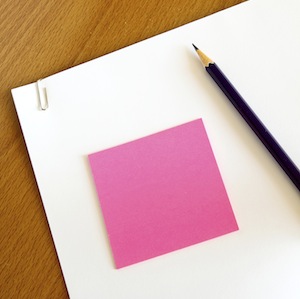Radical Simplicity
Radical simplicity.

I am throwing out everything and restructuring our processes from scratch, literally working from blank paper with a pen as I map out how we can reduce steps for common actions.
Image Property of iStockphoto / Thinkstock
The phrase that has been on my mind, constantly humming in the background almost ceaselessly, for the past three or four weeks is “radical simplicity”. It’s the last thought on my mind when I fall asleep at night, and the first thing I think about when I wake up.
Radical simplicity. It has little to do with the topic of the book by the same name, which focuses on global sustainability. I’m talking about individual people living lives that are cleaner, more efficient, with less frictional costs in terms of time, money, and disaster, all by operating like a well-indexed database.
Radical simplicity.
I want everything from my kitchen drawers to my business holdings, my investments to my personal insurance documents radically simplified. This means that everything can be monitored within seconds. The words, “do you know where …” or “do you know when …” should never be uttered.
There should be comprehensive databases of my copyrights that update in real time as I pen knew material and license it. Our ecommerce businesses should have one – not half a dozen – domain registrars who then point the nameservers to the respective hosting services.
There shouldn’t be any icons on my desktop.
There shouldn’t be any messages in my email inboxes – they should either be answered, deleted, archived, or given a specific spot on the schedule during which time a response will be posted.
All of the insurance information, across multiple businesses and lines (life, health, supplemental, property, casualty, etc.) should be instantly accessible through a secure sever with access credentials provided in a safe deposit box marked “in the event of emergency”, instead of being handled in self-contained boxes, as they are now.
The linen closets in my home should be completely emptied and put on a rotation so that on set intervals, all of the towels are thrown out and replaced, just like a hotel.
Automation, checklists, and processes. Radical simplicity. There should not be thought required for the frictional areas in life so that I can focus on the bigger, more important things.
How I Started Thinking About Radical Simplicity
The seeds of this focus on radical simplicity were planted during the six-month project last year, when we drastically reduced our paper output, migrated certain services to online platforms, and renovated part of the house. Now, I am realizing just how much further we can expand the scope and efficiency of this way of living.
Simplicity is beauty. Opening a well-structured spreadsheet or a well-planned annual report are testament to that truth. The cleaner your data and processes, the more quickly you can adapt.
It’s a completely different way of looking at things from what I have in the past. I can continue to grow, and expand, what I do without the need for a lot of complexity or additional layers if I practice radical simplicity. I mean throw-away-anything-I-haven’t-used-in-the-past-year radical.
Part of this comes from reading a book I heard Charlie Munger talk about in an interview or speech (can’t recall) called The Checklist Manifesto, which I bought earlier this year. Another part comes from Gene Bedell’s insistence upon focusing only on those activities that have massive influence on shooting you closer to whatever goal it is you seek, rather than spending time bogged down in the meaningless shuffling of papers and administrative tasks. I realize that compared to most people, I am already enormously efficient but there is a lot of excess that can be shed. I’m probably only running at 40% to 50% capacity in terms of output, because there is a lot of time spent on things that could be automated with scripts or outsourced, then followed up with a checklist.
Radical simplicity. It seems somewhat ambiguous but my job for the next six to twelve months is to go through my life and figure out what I can distill into the cleanest, most efficient, most productive, most automated method possible.
Try this. Stand in the middle of your living room or office, look around, and say that phrase over and over again in your head. Radical simplicity. How would your surroundings look different? How would your behavior look different? How would your life change?
What would you do if you didn’t have to think about the small things that get piled up on the kitchen counter, or the little tasks that constantly crop up? What if you didn’t have to go to the grocery store because they were automatically delivered on a schedule? What if you were free to focus on the things in your life that have the biggest payoffs, with no distractions?
Radical simplicity is the key to getting there. Clear off anything and everything that isn’t immediately necessary to the chess board.
Radical simplicity. I can’t get it out of my head. It’s like a broken record, playing over and over as I look around and realize how much improvement I can bring to our already great processes.


